The classic songs most people misinterpreted
They’re the songs that have us tapping our toes and belting out the lyrics. Some were even used in presidential and advertising campaigns, but the true meanings of these popular songs are widely misinterpreted.
Music, like literature or art, is open to interpretation — and that’s when our capacity for independent thought — or a lack of it — gets us into trouble.
While the lyrics of some songs are left deliberately cryptic by their writer, in other cases we can get sucked in by a line, or by a melody that belies a songwriter’s darker lyrical intentions.
There are a host of songs for which many of us just miss the point. Here are a few.
‘YOU GOTTA LOVE THIS CITY’ — THE WHITLAMS
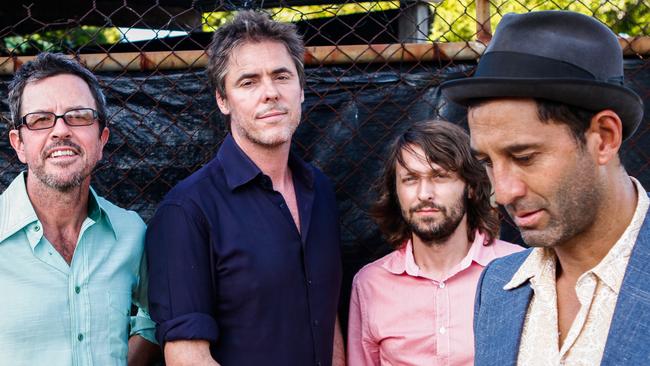
The Whitlams released a new album, Love This City, in November 1999 — just as the harbour city was gearing up for the Olympic Games, and the album track “You Gotta Love This City”, went on high rotation on a host of Sydney-based radio and television programs.
The self-adulation was a bit of a laugh when you what frontman Tim Freedman had in mind when he wrote the song.
It centres on a bloke who loses his girlfriend, his job and, through a series of events, his self-respect, wandering the streets of Sydney in a daze, bottle in hand until he comes to a realisation: “Then it dawns on him as a cracker explodes/And who the hell is he going to blame?/It dawns on him — the horror — we got the Olympic Games”.
The man is so horrified he cries, “My city is a whore” and takes his own life by throwing himself into the harbour.

It’s not a love letter to his home town, as it was widely interpreted. It’s an allegory for Sydney’s shallow nature — an idea borne out in the local reaction to its cool little groove and “You gotta love this city, love this city, you gotta love it, love it” chorus.
If you catch the right Whitlams or solo Freedman show, you might hear Freedman describe the time during the Olympics that he was interviewed by ABC Radio Sydney host Angela Catterns, in which she told him how much she and her team loved the song, and asked him to play it live on air.
“Are you sure?”, Freedman asked. Catterns urged again, so he launched into a biting version of the song, yelling the line “My city is a whore!” to hammer home its point.
‘PUMPED UP KICKS’ — FOSTER THE PEOPLE

This song is a triumph of sound over substance.
The bright indie-pop melody contrasts with ultra-dark lyrics about a homicidal teenager’s mass shooting, presumably at his school.
The “pumped-up kicks” are the flashy runners all the other kids will need to wear to outrun his gun.
Commercial jingle writer Mark Foster wrote the song because of his concern about mental health among your people and the prevalence of gun violence in the United States and released the song at first on his website, where it went viral, topping alternative and mainstream charts in the United States.
It was included in a host of television shows and films, many of which completely missed the point of the song, and even featured in a commercial for XXXX Summer Bright Lager here in Australia, editing out the homicidal part of the chorus.
‘BORN IN THE USA’ — BRUCE SPRINGSTEEN
This song about the experience of Vietnam veterans encompasses such an upbeat, anthemic quality that people seem to ignore the subject at hand.
Springsteen’s 1984 hit about a man who fell into the US military after a brush with the law, did his duty, lost a brother in the infamous Battle of Khe Sanh and came home to find nobody cared about him or his service became a theme song for President Ronald Reagan’s 1984 re-election campaign.
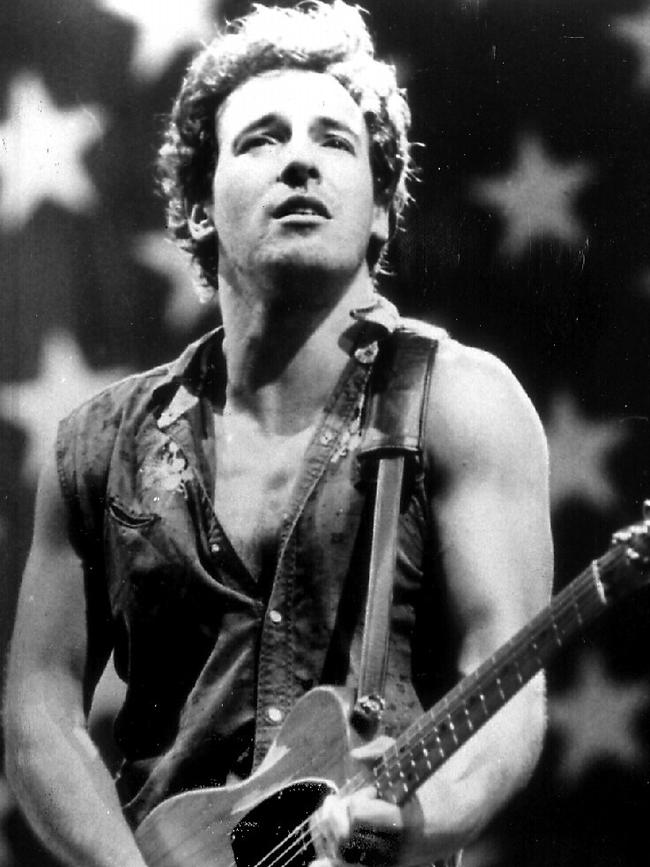

This ignored both Springsteen’s objection to its use in the campaign and the fact that being born in the USA didn’t do all that much for the song’s central character.
The original demo for the song, presented on Springsteen’s YouTube channel, shows how slick production turned the song from a cry for help into a patriotic clarion call.
‘KHE SANH’ — COLD CHISEL
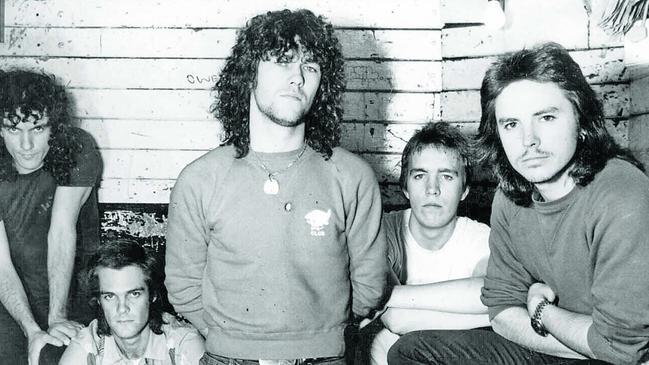
Meanwhile, Cold Chisel’s 1978 debut single, “Khe Sanh”, is an unofficial national anthem.
A 2001 poll of members of the Australasian Performing Rights Association voted the song the eighth best Aussie song ever recorded.
The song, based on the lives of several Vietnam veterans that songwriter Don Walker knew, has been enticing generations of Aussies to belt out the song at the top of their voices — especially the “last plane out of Sydney” bit towards the end.
These time-honoured beer-fuelled antics fly in the face of the subject at hand — the homecoming of a vet who finds everything has changed.
His romantic relationship in ruins, he hits the road and lives a knockabout existence craving speed and novocaine as he works various jobs before deciding he is leaving Australia for a Hong Kong mattress and a new life. So, not really a celebration of 'Straya at all.
‘GO YOUR OWN WAY’ — FLEETWOOD MAC
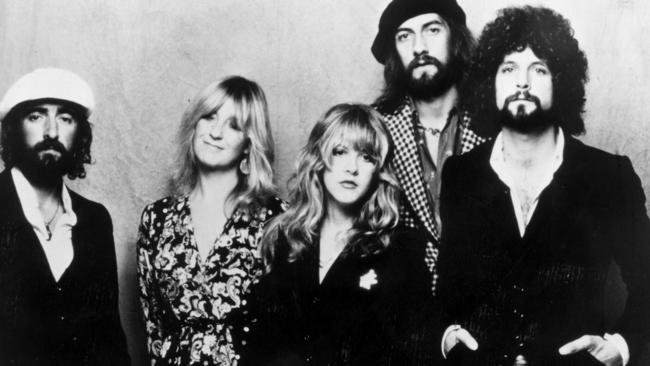
“Don’t Stop” was the second single of Fleetwood Mac’s career-defining album Rumours, recorded at a time when all members of the band had serious relationship issues.
“Go Your Own Way”, the first single from the album, was an expression of guitarist Lindsey Buckingham’s white hot rage at fellow band member Stevie Nicks walking out on him after years together.
This didn’t stop the marketing bods at General Motors’ Japanese arm Isuzu using a re-recorded version of the track as an expression of freedom and individualism as its utes and SUVs tore across idyllic Aussie bush scenes. You can go your own way! Go your own way!
Adding to the General Motors connection, Melbourne rock band Kingswood recorded the song specifically for the ad.
‘DON’T STOP’ — FLEETWOOD MAC

Reagan wasn’t the only US politician to miss the point of a popular song.
Fleetwood Mac’s 1977 hit was a song written by keyboardist Christine McVie to her ex-husband, bassist John McVie, as their marriage crumbled, urging him to look forward and reminding him that yesterday and Christine were gone.
Fast forward to 1992, and the song became the theme for Bill Clinton’s tilt at the top job.
The band was down with the misinterpretation, though. Fleetwood Mac reformed briefly to perform it at Clinton’s inauguration ball in 1993.
‘EVERY BREATH YOU TAKE’ — THE POLICE
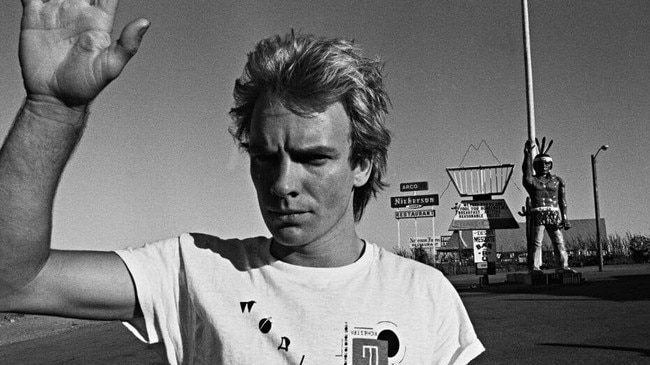
This slightly menacing song was penned by Sting and was a monster hit for The Police in 1983.
Anyone who’s been to a wedding since then has probably heard it as an expression of nuptial bliss.
This has mystified Sting because it’s a song about an obsessed man is stalking his ex-girlfriend. “Every move you make, every step you take, I’ll be watching you.” Yikes.
Acknowledging the song’s sinister overtones, Sting once told American Top 40 host Casey Kasem, “One couple told me: ‘Oh, we love that song. It was the main song played at our wedding!’ And I thought, well, good luck.”
‘MY HAPPINESS’ — POWDERFINGER

Another wedding favourite, “My Happiness”, was a pretty grim song written by Powderfinger frontman Bernard Fanning to describe the loneliness and isolation of touring with a band.
Fanning is confused about why people regard it as a romantic song, but he told SBS in 2017 he has a theory.
“ … There’s a lot of people that just hear my happiness but that’s the reality you’ve got to
face, I think, as a songwriter,” he said.
“Most of the time that's all the song is to people, is just something to whistle and tap their feet to.”
‘STREETS OF YOUR TOWN’ — THE GO-BETWEENS
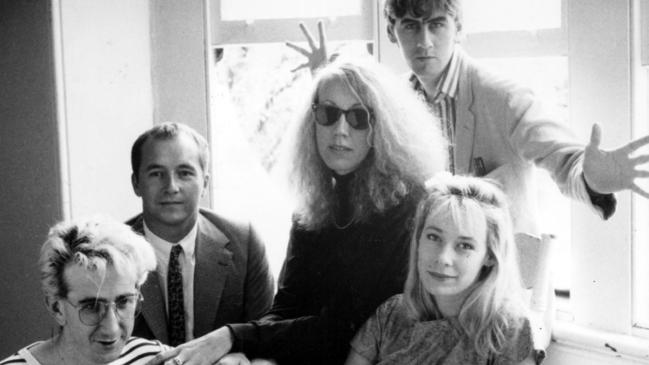
The title and dreamy chord sequence of this 1988 Go-Betweens song evokes a summery mood and relaxed living in a regional setting.
The song has been used in a series of marketing campaigns, most famously for regional TV Network Prime (now Prime7).
For Prime and others, the song is an affirmation about the pleasures of living in “your town”.
The only issue with that is the first verse: “Don’t the sun look good today?/But the rain on its way/Watch the butcher shine his knives/And this town is full of battered wives.”
It’s hard to ignore that blunt reference to domestic violence in the first verse, but many people do.
‘AM I EVER GONNA SEE YOUR FACE AGAIN?’ — THE ANGELS
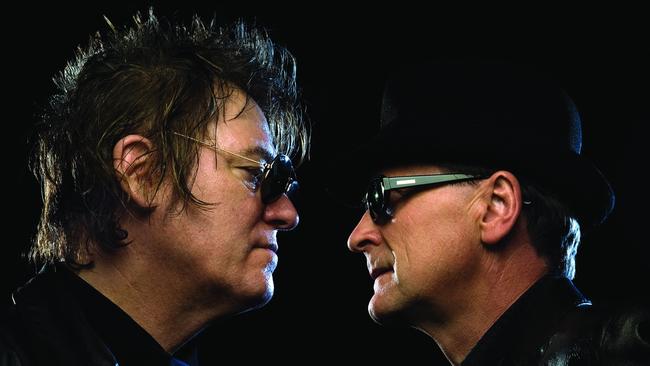
This 1976 Angels song sounds like a young man’s longing following a romantic relationship gone wrong, but it’s more serious than that.
Reportedly, lead singer Doc Neeson — Bernard to his mum — wrote the song with bandmates
Rick and John Brewster based on a conversation he had about life after death with a grieving mate who had lost his girlfriend in a motorcycle crash.
It’s not clear is Rick Brewster’s guitar solo, which mimics the sound of a 1970s ambulance siren, was a deliberate or unconscious addition, but it became one of The Angels’ most popular songs.
While generations of Australians love the song’s up-tempo, hard rock sound and expletive-filled crowd refrain, the song actually started life as a slow ballad with a much darker origin.
‘HAPPY XMAS (WAR IS OVER)’ — JOHN LENNON AND THE PLASTIC ONO BAND
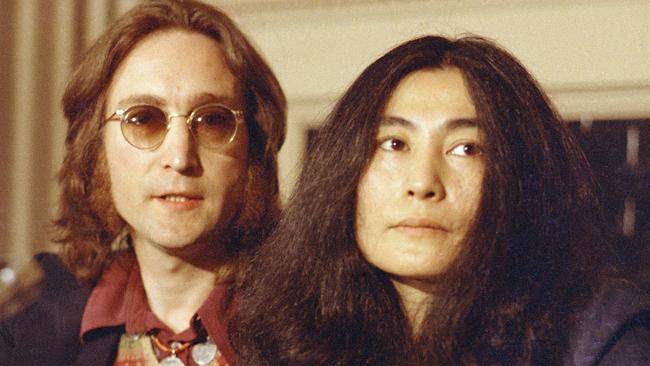
Shopping centres all over Australia will be wheeling this old chestnut out any day now, if they haven’t started already, but this protest song about America’s involvement in the Vietnam War is treated as a Christmas carol these days.
The genesis of the song came two years before its 1971 release in an international anti-war billboard campaign in late 1969 that featured the words, “WAR IS OVER! If You Want It — Happy Christmas from John & Yoko”, an effort to pressure the Nixon administration into withdrawing from Vietnam.
RELATED:
HOW MELBOURNE GREETED ABBA IN 1977
IG STARS BEHAVING BADLY IN MELBOURNE
FESTIVAL HALL’S GREATEST MOMENTS
Like Lennon’s masterpiece “Imagine”, “Happy Xmas” was an attempt by Lennon to promote peace and harmony in a less confrontational way in an era when there was a real prospect he could be deported from the United States for his “subversive” activities.
By January 1973, the US began a full-scale withdrawal from the war following the signing of the Paris Peace Accords, but ironically not before a horrific bombing campaign the month before known colloquially as the Christmas bombing of Hanoi.
